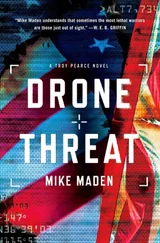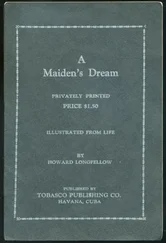Ji believed the greatest threat to the expeditionary force at the moment was President Sun. As a precaution, the admiral had deployed a second battalion of marines to guard Ningbo from a possible PLA attack that Sun might mount to stop the small fleet while it was still at base replenishing for the mission, but no such attack occurred. Ji wondered if Sun’s inaction was a tacit endorsement of his efforts. But Vice Chairman Feng argued that President Sun was more afraid of the blowback he would suffer for an attack on a Chinese naval facility led by China’s greatest and most admired military commander. Feng also assured his allies in and out of uniform that Admiral Ji’s task force was preparing for a mission to secure China’s future and glory, and squashed the ugly rumor that the PLAN was preparing some sort of military junta against Sun and his reformist cronies.
A junior officer approached Ji with a cup of steaming hot tea. The young man’s eyes radiated with hero worship. Ji took the tea with a grateful nod and dismissed him, cherishing the last few moments of solitude he would enjoy before he transferred his combat command to the Liaoning .
THE KANTEI
TOKYO, JAPAN
18 MAY 2017
10:01 A.M. (JST)
The cabinet room on the fourth floor was much larger than the prime minister’s circular private conference room, matching the shape and scope of the enormous blond birchwood table in the center. The walls were a combination of birchwood and diatomaceous earth, and a window afforded a view of yet another tranquil rock garden. For Myers, the intention of the design was to induce a kind of natural serenity, but the mood in the room this morning was just the opposite.
Prime Minister Ito’s entire cabinet was seated around the table in supple white leather chairs, while their assistants and secretaries stood anxiously behind them, clutching file folders, tablets, and smartphones.
Myers sat to Ito’s right, a position of high honor. She wore an earpiece linked to an official government interpreter in an adjoining room. Lane had informed her about the Chinese fleet setting sail and the latest Chinese demands. The crisis was escalating, yet Lane’s calm voice reassured her. For a president on the verge of war, he was amazingly composed. Another advantage of having a commander in chief with combat experience.
Lane asked her to attend Ito’s emergency cabinet meeting. She agreed, of course. Anything to help. They discussed his agenda. Under no circumstances could she allow the Japanese to undertake unilateral action. She concurred, silently wondering how in the world she could possibly prevent them from doing so. Lane wished her luck.
Ito called the meeting to order.
“Today’s session will be recorded for posterity, but the information discussed is top secret. Under no conditions are any of the matters we discuss in this room today to be released to the general public.”
Heads nodded around the table.
“What is she doing here?” Tanaka asked, glowering at Myers.
The translator’s voice echoed with Tanaka’s anger. The emphasis was hardly necessary , Myers thought. His eyes were enough.
Ito stiffened. “President Myers is here today as my guest and as a personal envoy of President Lane. As many of you know, President Myers and I have been friends for many years. I trust her as I trust my own sister. She also enjoys the complete confidence of President Lane. We may speak freely and candidly in front of her, and I encourage her to speak frankly as well. Her role is to convey the substance of today’s meeting to President Lane and his cabinet, which will be meeting shortly as well. Does anybody object?”
As both the prime minister and party leader, Ito’s authority in the room was unquestioned. But anti-American sentiments were escalating around the country — it appeared as if the United States were abandoning the Japanese to their fate. The elected officials and representatives seated in the room reflected those public sentiments.
Several shifted uncomfortably in their seats, but no one objected publicly. Tanaka already had by inference.
Ito nodded at his minister of defense. The MOD reported that the Chinese fleet was twenty-two hours away from breaching the territorial waters around the Senkakus. He briefed everyone on the extent of the Chinese ship, aircraft, and troop complement, as well as Japanese and American forces in the area.
The foreign minister then read the letter hand delivered to her office personally by Ambassador Pang and signed by Vice Chairman Feng. The letter began with a virulent protest against the “war-era suicide assault” on the Tiger II oil-drilling ship before launching into a reassertion of China’s historical and legal claims to the disputed islands. Feng’s letter then announced the arrival of Chinese PLAN marines who would occupy the two largest islands in the chain “in order to protect Chinese lives and property in Chinese territorial waters against future Japanese aggression.”
The letter also demanded unobstructed passage of their ships to Mao Island and no armed resistance to Chinese landing forces, and ordered the Japanese government to turn over all of the islands in question to Chinese authority and further demanded immediate recognition of the them as sovereign Chinese territory in perpetuity.
The letter concluded ominously. “Failure to comply with our demands or violating the terms set forth herein shall constitute an act of war against the People’s Republic of China.” The foreign minister practically hissed as she read the last sentence. So did the translator.
“So there we have it,” Ito said. “The Chinese fleet is on its way to seize the Senkakus, daring us to oppose them. We’ve discussed our options at length. Do nothing, wait for the Americans to dispatch the Sixth Fleet, or dispatch our own fleet to fight them.”
“If we do nothing, we’ll only encourage the Chinese to seize other disputed territories throughout the region,” the defense minister said. “Our inaction puts several of our regional allies at risk.”
The foreign minister nodded vigorously. “If we do nothing, we declare ourselves to be vassals of both the Chinese and the Americans.” She waved a hand for emphasis. “Completely unacceptable for a sovereign nation.”
“Our conference with President Lane yesterday made it clear that he will not dispatch the Sixth Fleet to block the Chinese,” Tanaka said. He turned to Myers, switched to English. “Do you agree with my assessment?”
Myers shook her head. “Not necessarily. President Lane has personally contacted President Sun, strongly opposing the current Chinese actions. He reaffirmed our treaty commitments to Japan and reminded him that any attack on Japan was tantamount to an attack on the United States.”
The aides of the few cabinet members who didn’t speak English whispered translations into their bosses’ ears.
“And what was President Sun’s response?” Ito asked.
Myers sighed. “He thanked the president for his concerns and promised to look further into the matter.”
The room exploded in a flurry of outrage. The translator did her best to keep up, but it was impossible to translate everything. It didn’t matter. Myers got the gist of it. They were mad as hornets, both at China and the U.S. She would be, too, if she were in their seats. She folded her hands politely in front of her and tried to calm the room with her disarming smile. “What matters is that President Sun has been formally warned about the consequences. I promise you those consequences were heard. President Lane also reminded President Sun that the George Washington carrier battle group was deployed to Okinawa two days ago for a training exercise.”
Читать дальше












